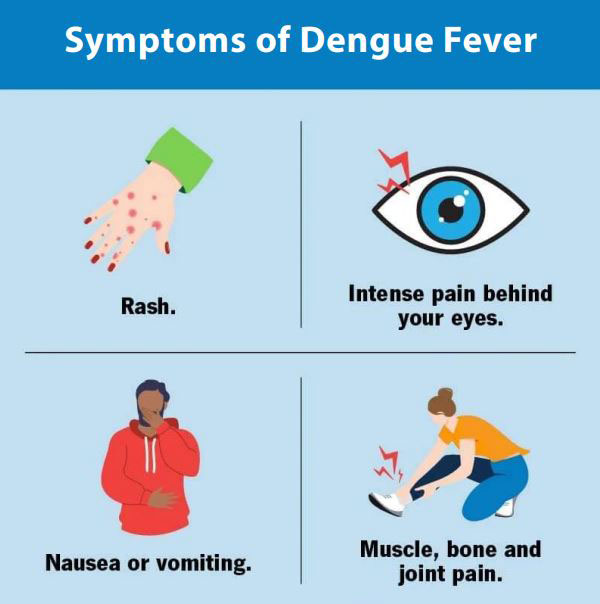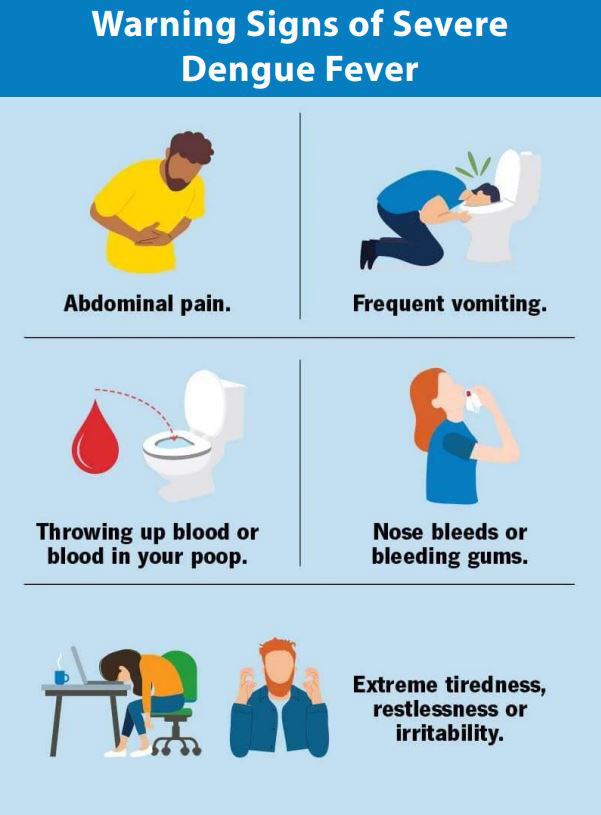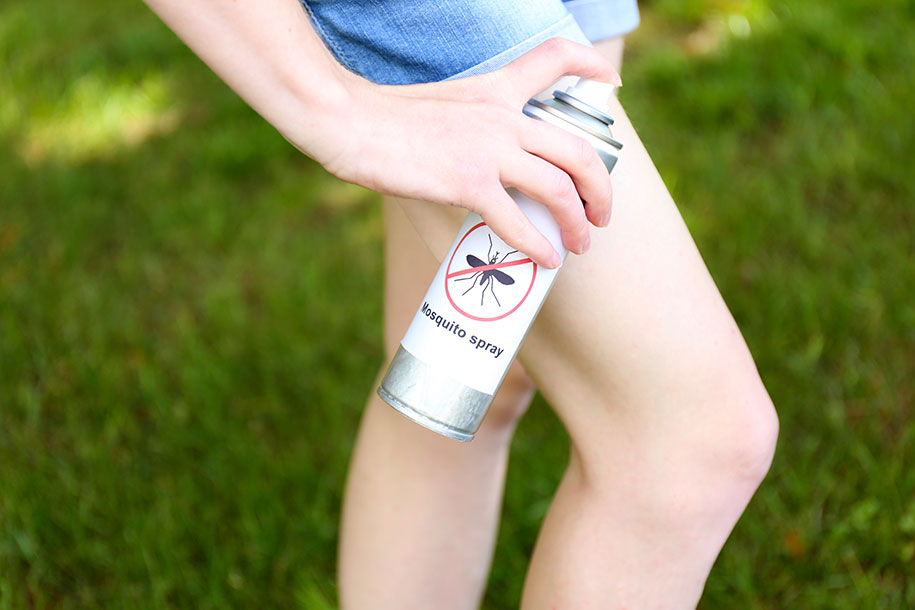Table of contents
WHAT IS DENGUE FEVER?
Dengue fever is caused by 1 of 4 different but related viruses. It is spread by the bite of mosquitoes, most commonly the mosquito Aedes aegypti, which is found in tropic and sub-tropic regions. In Vietnam, dengue fever is very common.
WHAT ARE THE SYMPTOMS?
- Sudden, persistent high fever, often as high as 40.5°C
- Headache, bilateral orbital pain
- Muscle pain, joint pain
- Loss of appetite, nausea, vomiting
- Sore throat
- Nasal stuffiness
- Rash – different types of rash, may be itchy and appears a few days after the onset of fever
- Bruises from minor knocks and bumps.
Dengue symptoms typically last between 2-7 days. Most people recover within a week.

DENGUE HAEMORRHAGIC FEVER
Symptoms of severe dengue can occur 24 to 48 hours after fever has gone away.
- About 1/20 people who contract dengue will develop severe symptoms.
- You are more at risk of severe dengue if you have ever had dengue before.
- Pregnant women, infants and elderly people are more at risk of severe dengue.
- Bleeding during severe dengue is due to low platelets; platelets are one of the blood components which help to clot and prevent excessive bleeding. Normal platelets levels are 150,000 – 450,000 per mL.
Warning signs of severe dengue include:
- Feeling very tired, restless, or irritable
- Severe stomach pain and tenderness
- Frequent vomiting (≥ 3 times within 1 hour or ≥ 4 times within 6 hours)
- Bleeding from the nose or gums
- Vomiting blood or passing blood in the stools or urine
- Abnormal vaginal bleeding
- Bleeding under the skin (looks like bruises)
- Difficulty breathing, rapid breathing.
Come to the Accident & Emergency Department without any delay if you experience or your child experience any of these warning signs

Very severe forms may include:
- Low blood pressure / shock due to leaking blood vessels
- Severe bleeding
- Organ failure
- The risk of dying from dengue complications is very low, less than 1% if supportive treatment is given early.
HOW IS DENGUE FEVER DIAGNOSED?
Dengue fever is diagnosed with a blood test.
In addition, you or your child may require a specific blood test (CBC) to be done daily to assess the platelet level.
HOW IS DENGUE FEVER TREATED?
There is no specific treatment for dengue fever. The majority of cases are mild and self-limiting, requiring no hospitalisation. The treatment is mainly supportive and for relief of symptoms:
- Bed rest
- Reducing activities like running around and avoiding sports to reduce the risk of falls and injury, thereby preventing unnecessary bleeding
- Fluid/water replacement: drink plenty of fluids to avoid dehydration from vomiting and high fever
- Take acetaminophen (Tylenol) or paracetamol to alleviate pain and reduce fever. Don’t take aspirin or other non-steroidal anti-inflammatory drugs, such as ibuprofen (Advil, Motrin) as these can increase the risk of bleeding complications
- Your child may also need to avoid brushing his teeth if his platelet counts are very low as this may lead to gum bleeding. Distract them from digging their noses or blowing their noses hard.
If you do develop a severe form of the disease, you will need hospital care. Hospital treatment will involve supportive care with analgesics, intravenous fluid and electrolyte replacement, blood pressure monitoring and sometimes transfusion.
HOW TO PREVENT DENGUE FEVER?
The best way to avoid dengue fever is to avoid being bitten by mosquitoes. At the moment, there is no vaccine available in Vietnam to prevent dengue.
- Schedule outdoor activities for times when this kind of mosquito is less prevalent. Avoid being outdoors at dawn, dusk and early evening, when more mosquitoes are about.
- Stay in air-conditioned or well-screened housing.
- Check for sources of stagnant water near your house and garden—these are places where the mosquito that transmits dengue fever breed and where the larvae live.
- Use repellent with a 10–30% concentration of DEET on your skin. Do NOT use DEET on the hands of young children or on infants under 2 months of age. Instead, cover your infant’s stroller or playpen with mosquito netting when outside. Pregnant women should reduce the usage of DEET mosquito repellent and apply on clothing instead.

CAN YOU OR YOUR CHILD SPREAD DENGUE TO OTHERS?
No, it is not transmitted by direct spread from one person to another. Dengue is only transmitted by infected mosquito bites.
CAN YOU OR YOUR CHILD BE INFECTED AGAIN?
Yes. There are 4 strains of dengue viruses. Infection with one strain will provide protection against only that particular strain. Future infection by other strains is possible.



